Adelaide, South Australia
Christian spirituality as a pathway for the modern seeker
In many societies, Christian spirituality is not seen as the go-to for those seeking a spiritual path in the contemporary context.
The blessings, insights and liberating possibilities of a spirituality grounded in the revelation of Jesus and the phenomena of the Spirit are not always easy to access or explore in meaningful ways for those not religiously enculturated. Such treasures are often buried under layers of unfamiliar ritual, liturgy and/or inflexible and unpalatable dogma. In other ways, the still, small, and liberating voice of Spirit is drowned out by the strident public proposition of theological certainty, leaving scant room for mystery, dialogue, and the contextualisation of a living word.
Moreover, we live in a world that is increasingly shaped by complex and intertwined forces – from environmental change, political upheaval, psychological pressure to endemic effects: the cry for one to be ‘seen’ in this moment is louder than ever. So then, is the need for a spirituality that can help one navigate, and be recognised in, the challenges of our time.
This conference is curious about an alternative way, and seeks to explore and champion a Christian spirituality that responds to our time. What does it sound like when Christian spirituality becomes conversational, rather than didactic? Where is the expression of Christian spirituality being recognised as profoundly hopeful, transformative and relevant to everyday people from all walks of life? Is there a Christian wisdom that can speak to spiritual seekers today? Do we have a language for conveying the Christ-centred spiritual life to modern-day seekers in ways that are person-centred, experience-based, and discovery-led? What are the public access points to meaningful exploration of spirit and how do they function? What is already happening now in these spaces? What might we envisage for the future? How might we discern the way forward, so that Christian spirituality can be seen to speak to an increasingly complex and challenged world?
CLICK HERE FOR MORE INFORMATION ABOUT SUBMITTING PAPERS |
This conference will be of interest to
Spirituality scholars and students, ministry practitioners, chaplains, spiritual directors and spiritual care workers and providers, Christian and religious educators, therapists, wellbeing and community workers, medical practitioners and paramedics with an interest in the phenomenon of spirituality as a factor in health, everyday thinking Christians with a desire to engage their community with intelligence and sensitivity, all others from professional and personal backgrounds who are curious about the value and place of Christian spirituality in a just and healthy society.
Conference culture and presentation format
This conference proposes and models a contemplative and transformative approach and as such offers an opportunity for an extended Lectio Divina. Our goal is for this conference to be and become a genuine experience of formation as well as a stimulus for the intellect and imagination. Therefore contemplative ‘breathing’ and creative dialogue spaces will be deliberately structured as part of the rhythm and pulse of the gathering. The conference seeks to listen to multiple voices in an inclusive atmosphere.
Welcome Video
See here for
Climate of Adelaide during the Conference
Conference Culture and Presentation Format
Conference Structure and Schedule
Conference Daily General Schedule (Wednesday, 5 and Thursday, 6 July 2023)
Conference Structure and Schedule
The official conference proceedings will unfold over two full days: Wednesday, July 5 and Thursday, July 6 2023 with a conference dinner on the evening of the second day.
See here for the general structure of the two days of conference proceedings
A third optional day of immersion in the culture, landscape and history of the Adelaide Plains and Hills, is offered particularly for interstate and overseas visitors (though locals are also welcome) as a form of retreat, reflection and cultural/landscape awareness.
Conference Daily General Schedule for July 5 and 6
| 8:00am | Conference venue open, complimentary coffee/tea, access to labyrinth, opportunity for informal networking |
| 8:45 - 9:25am | Registration |
| 9:30am | Live music and guided contemplative participation/conversation |
| 10:15am | Housekeeping |
| 10:20am | Keynote 1 |
| 11:00am | Morning break with refreshments |
| 11:20am | Breakout sessions |
| 12:40pm | Lunch and various interactive opportunities |
| 1:40pm | Lectio Divina |
| 2:00pm | Keynote 2 |
| 2:40pm | Breakout sessions |
| 4:00pm | Practitioner spotlight and blessing |
| 4:15pm | Summary comments |
| 4:20pm | Drinks and conversation, informal discussion/reflection/networking |
| 5:00pm | Short address from SSCS President (first day of conference); Short address from the Chair of the International Relations Committee of the SSCS (second day of conference). Conference venue and labyrinth space open until 6pm |
Note: The conference dinner will be held off-site from 6:30pm at the end of the second day of conference, Thursday, July 6. (Venue TBA).
Keynote Speakers
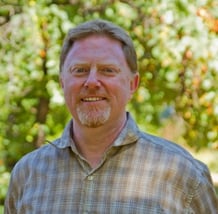
Garry Deverell DipEd, BA, BTheol (Hons), PhD
Garry Deverell is Lecturer and Research Fellow in the School of Indigenous Studies at the University of Divinity, Melbourne.
A trawloolway man from northern lutrawita (Tasmania), Dr Deverell is the author of Gondwana Theology (Morning Star Press, 2018), an insightful and prophetic reflection on Christian faith from the perspective of Australian Indigenous spirituality and culture. Gary’s book and spiritual journey have been profiled within the Soul Search Radio National (ABC) series under the theme of “grounded spirituality” (broadcast September 20, 2020).
Garry is an international expert in sacramental studies, especially insofar as sacraments intersect with theories concerning the formation of human selves in community. His more recent research has turned towards theologising the experience of Indigenous peoples within and beyond the colonial church.
Gary is uniquely placed to address the conference theme of “Christian spirituality as a pathway for the modern seeker”, in that his contemplative, and critical, conversation between the narratives of scripture and an Indigenous sense of place, Christian story and Aboriginal dreaming, position him as a multi-focal guide to an imaginative and hospitable rendering of the faith that simultaneously welcomes and challenges humanity to be better than it is.
Garry is a priest of the Anglican Diocese of Melbourne and member of the National Aboriginal and Torres Strait Islander Anglican Council.
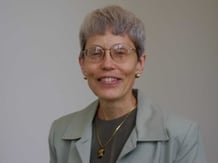
Mary Frohlich, RSCJ PhD (Catholic University of America), MA, BA (Antioch College )
Mary Frohlich is a renowned international scholar in the field of spirituality having taught spirituality at Catholic Theological Union in Chicago from 1993 to 2020. Her current research interests include the contributions of the physical and human sciences to insight into spiritual transformation, contemplative contributions to fostering ecological conversion, Christ and the new animism, and methodological issues in spirituality. She is trained as a Forest Therapy guide and frequently leads walks, workshops and retreats with ecospiritual themes.
Mary has made a significant contribution to shaping the field of Spirituality and its transformative horizon. Her contributing chapter to The Soul of Higher Education (2019), Contemplative Method and the Spiritual Core of Higher Education, is one example of her applicatory thinking and capacity to frame the relevance of Christian spirituality for broad human application in the contemporary environment of secular cultures. She also published Breathed into Wholeness: Catholicity and Life in the Spirit in 2019. Mary is also a noted scholar and teacher of Carmelite spirituality with publications on Teresa of Avila, Therese of Lisieux, and John of the Cross as well as on broader issues in the tradition. She served as President of the Society for the Study of Christian Spirituality in 2007-2008.
Mary is Professor Emerita at Catholic Theological Union.
Conference Feature Points
Interactive concurrent breakout sessions: The conference facilitates four, dynamic and interactive concurrent sessions over two days
Practitioner spotlights and benedictions: At the end of each conference day we will receive a blessing and benediction from an innovative practitioner whose work represents the spirit of the conference theme
Contemplative curation: Two contemplative spaces have been scheduled for each of the conference days to enable delegates to find breathing space and to nurture the soul
Art therapy thread: Michelle Krieg is a highly experienced and gifted art therapist who brings her practice to the conference to enhance our experience of contemplative community. Michelle will facilitate interactive and inclusive opportunities in various spaces and places as an artistic thread in our dialogue and way of being together.
Labyrinth walking: A temporary labyrinth will be established in a dedicated room to enable delegates to walk the sacred path during breaks and/or before and after proceedings on each conference day.
Live music and ambience: Drawing on the resources and creativity of Tabor’s Bachelor of Music faculty and student body, our gathering will be blessed with a selection of live music pieces, both for backing and performance
Adelaide Hills and Plains Encounter Day: Adelaide is a city of hills and plains. This encounter day offers conference delegates, particularly those visiting from overseas and interstate, an opportunity to engage with the spirit of the city and its environs. The structure of the day offers a walking/listening/tasting pilgrimage and a further opportunity to mingle with and get to know other delegates. If you would like to join us for this time, please choose the relevant 3-day conference registration option.
- Walk a section of the banks of the Karrawirra Pari (red gum forest river) Torrens River that runs through the Adelaide CBD, learning a little more of the indigenous story of the Kaurna people
- Spend contemplative time in St Peter’s Cathedral, an architectural icon of the city and centre for contemplation and the arts
- Take the view from Colonel Light’s statue and learn more about the European origin and vision of the city
- Travel upwards from the plains to the Adelaide Hills, lunching at the stately and impressive, Mt Lofty House.
- Experience a further taste of the Adelaide hills by strolling around the Mt Lofty Botanic Gardens and the village of Stirling
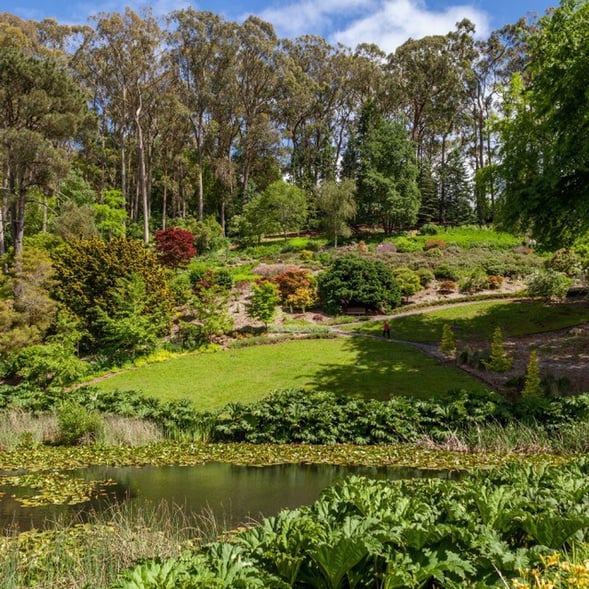
Mt Lofty Botanic Gardens, Adelaide. Photo credit: www.botanicgardens.sa.gov.au
Conference Cost
- 1-day registration (either July 5 or 6) - $180 (if registered by November 30, 2022); $200 (if registered by March 31, 2023); $235 (if registered after March 31)
- 2-day registration July 5-6 (without conference dinner) - $290 (if registered by November 30, 2022); $320 (if registered by March 31, 2023); $390 (if registered after March 31)
- 2-day registration July 5-6 (including conference dinner) - $350 (if registered by November 30, 2022); $380 (if registered by March 31, 2023); $450 (if registered after March 31)
- 3-day registration (July 5-7 including conference dinner and Adelaide plains and hills day) - $450 (if registered by November 30, 2022); $490 (if registered by March 31, 2023); $550 (if registered after March 31)
Special discount of 40% on all registration options above for tertiary students.
Please email SSCSConference@adelaide.tabor.edu.au along with your name and TCA number for your access code to enter at checkout.
Discount code for SSSC members of 10%.
Please email SSCSConference@adelaide.tabor.edu.au along with your name and Member number for your access code to enter at checkout.
To see where to enter a discount or prom code, see the image below.
.png?width=413&height=413&name=Annie%E2%80%99s%20invite%20%20(1).png)
Call for papers
Papers are invited to respond to three broad themes reflecting the conference culture:
- Contemplative Conversation
- Imaginative Discernment
- Courageous Embodiment
These themes draw from the recent research of Hulme (2021)1 as significant patterns of meaning-making for contemporary formation.
Each theme is further expanded below:
Contemplative Conversation: How do we listen and communicate contemplatively?
This theme emphasises the contemplative heart of Christian spirituality and invites responses focussing on contemplative engagement.
- How do we cultivate contemplative conversations and modes of being that are empathetic, open to surprise and sensitive to the movements of the Spirit?
- What resources from the tradition enrich this fundamental disposition for generous, deep listening in our conversations with modern seekers?
- What are possibilities for spiritual formation, and education through contemplative frameworks?
- How can Christian spirituality help us engage with diverse and polarised views both within ourselves and across society?
Imaginative Discernment: How do we discern, amongst complexity and multiple voices and respond in wisdom and fullness?
This theme emphasises the imaginative expression of Christian spirituality and invites responses focussing on the discernment process and response.
- In what ways can we employ multiple ways of knowing to discern what is real and illusory, and creatively perceive ways forward?
- What resources from the tradition help us foster a collaborative disposition for discerning sacred truths in the lives of modern seekers and our own?
- How can imaginative discernment guide us through tensions of collective vs individual impulses, engaging with calls for freedom, independence, rights or autonomy
- How can Christian spirituality engage with professions, contexts and pedagogies to bring wisdom and discernment to community, organisational and society upheaval?
Courageous Embodiment: How do we embody new life and bring to fruition the gifts we are given?
This theme emphasises praxis in Christian spirituality and invites responses focussing on how discerned truths move into living actions and behaviours.
- How do we harness the gifts that have been given to forge new pathways with courage, hope and freedom?
- What does an embodied spirituality look like for individuals and communities in the contemporary complexities and challenges of the day?
- What resources from the tradition enable us to become encouragers (givers of courage) to modern seekers towards transformation of the world?
- How can the embodiment of a spirituality of presence shape leadership in this context?
Abstract Submission
Contributors are invited to submit an abstract for consideration of up to 300 words, identifying a theme of alignment. Abstracts can be submitted to SSCSConference@adelaide.tabor.edu.au by November 30, 2022.
Authors are additionally invited to nominate whether they would like their accepted paper to be considered for publication in the upcoming special issue of Spiritus following the conference: Full text of articles for peer review to be submitted by January 31, 2023.
Presenters in concurrent break-out sessions will be asked not to read their papers but to speak for 10 minutes on the burning question or idea that their paper seeks to address. Then, to spend a further 10 minutes facilitating interaction and engagement with the question or idea with the participant group. Those presenting papers are strongly encouraged to make an electronic copy available at the conference to enable interested participants to read their work in its entirety.
About the Conference Venue
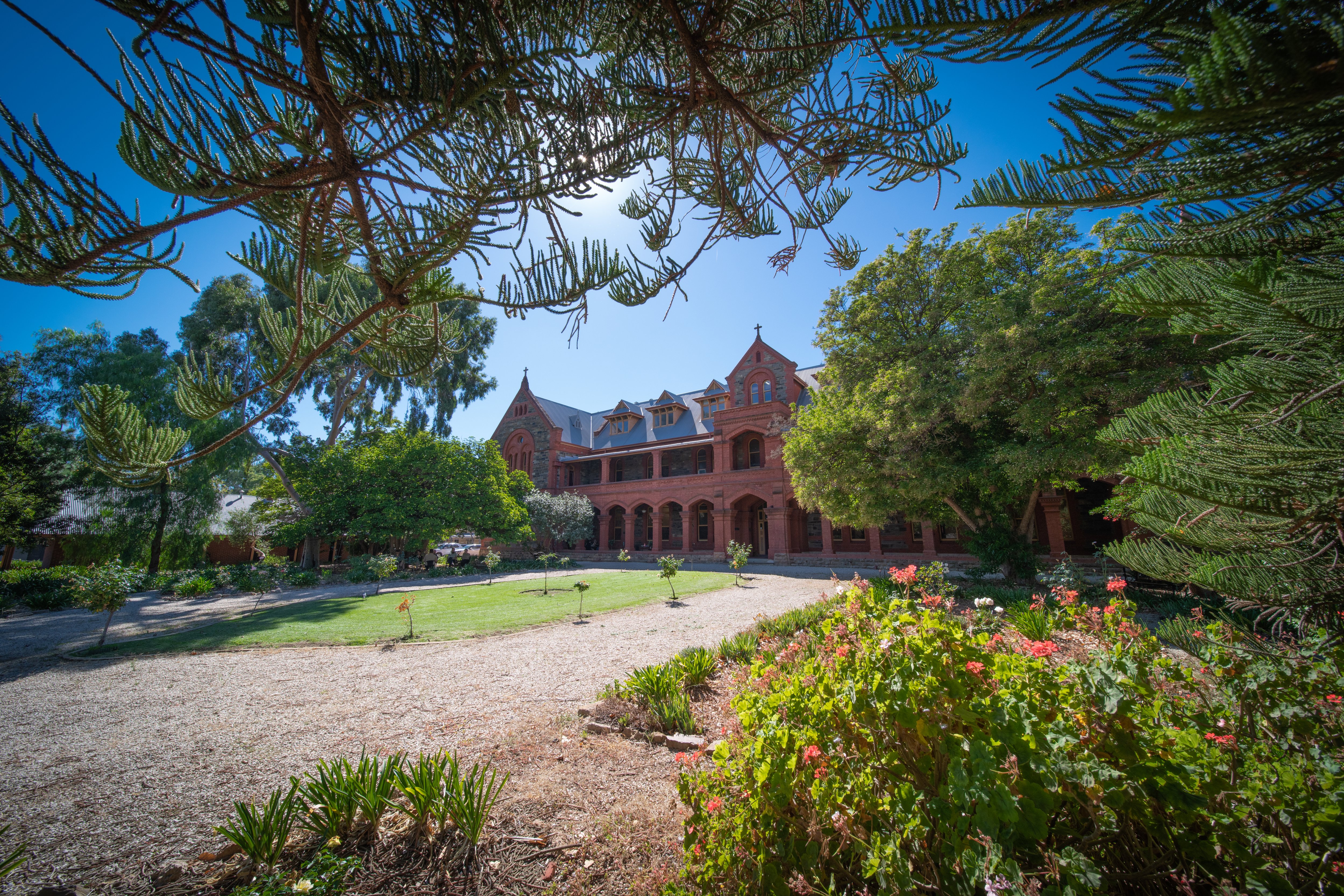
Tabor Adelaide Campus: 181 Goodwood Road Millswood SA 5034
Tabor's Adelaide campus, which opened in 1979, is located on 181 Goodwood Rd, Millswood SA 5034, in a lovely residential area surrounded by parklands. The site is surrounded by National Trust-listed historic heritage buildings that have previously served as an orphanage and, more recently, as an Education Centre. It is only a 3-minute walk from the Millswood Train Station, which is located on the Belair line and is only 3 kilometres from the Adelaide CBD.
- Transport: Catch an Uber, bus or train from the Adelaide CBD to the Tabor Campus that is only 3 kilometres in distance (6-12 minutes in car and 20 minutes in bus)
- Places to eat / Restaurants: Try Gingers Vintage Lounge Bar (Café & Restaurant in Goodwood): A retro-styled lounge with great food – Located 600m from our campus. OR visit the Hyde Park Bakery Located at the end of King William Road, to try traditional & delicious Australian pies, Pastries, Sweets & Treats, including Coffee and Cold Drinks. OR visit The Goody to experience a traditional Australian PUB with a refreshing drink, entertainment, and a great feed; best enjoyed with friends.
- Shopping: Visit the Hyde Park Boutiques (Only 900m from Tabor Campus) near 167 King William Road, including Shopping Stores, Day Spas, Fashion Stores, Book Stores, and many beautiful restaurants for you to try. OR visit Unley Shopping Centre (204 Unley Road, Unley SA 5061) located 2km from the Tabor Campus for over 40 different stores under 1 roof, serving fresh food, fashion, and other services.
- Accommodation: watch this space for more information
Helpful Travel Advice to South Australia
Experiencing South Australia
We are so pleased that you are visiting us for the conference! We would like to give you a guide from a local perspective about exploring South Australia and share some local tips and insights with you.
About the Climate of Adelaide During the Conference
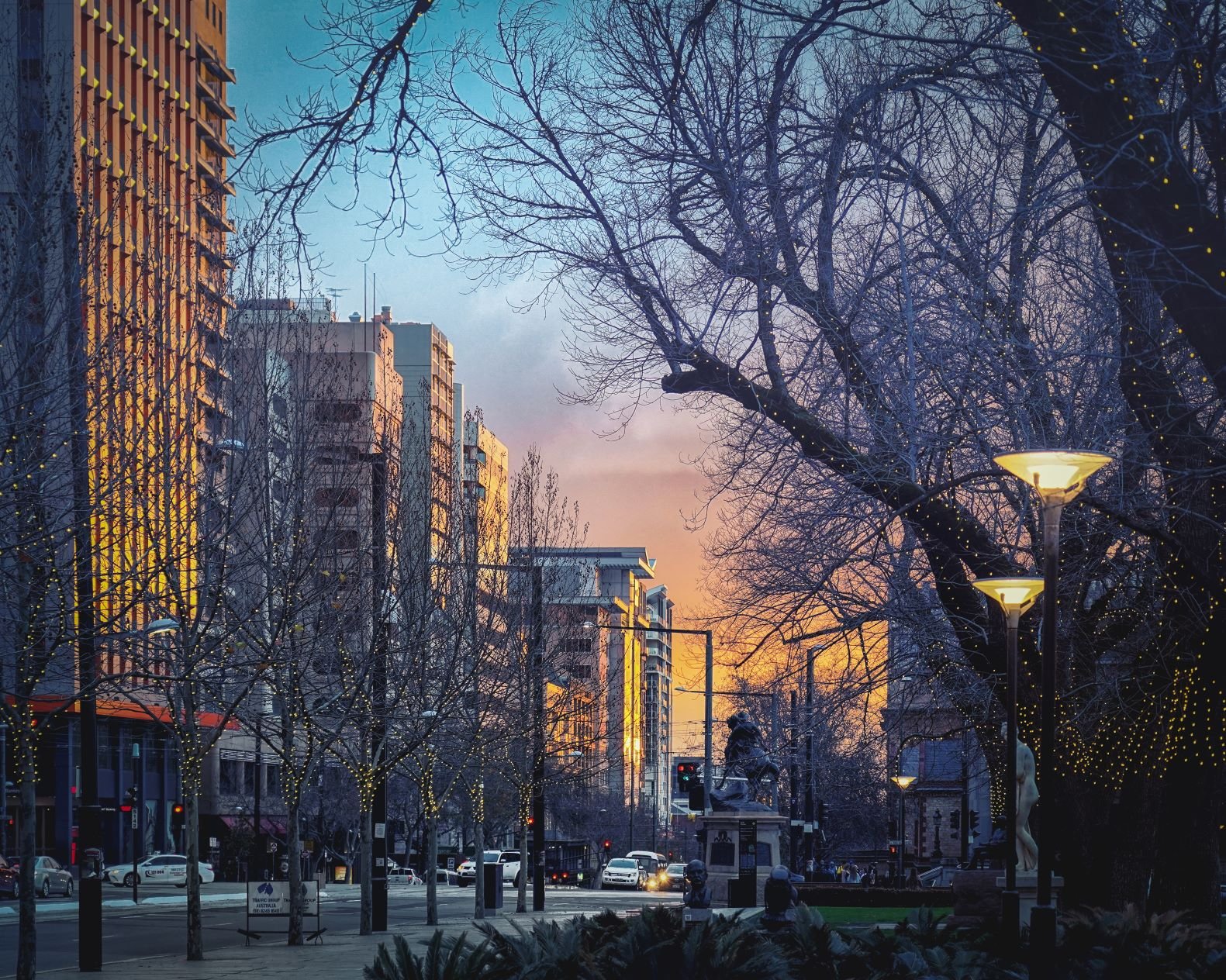
Adelaide on a typical late afternoon. Photo credit: Andrew Austin
Adelaide is known for its beautiful warm weather in summer and spring time. During this conference in July, Adelaide will be in the midst of its cosy winter period, requiring jackets, jumpers, and scarves as temperatures are forecast to be between minimum 9 and high 18 degrees Celsius.Rain and ordinary showers are also possible at this time of year, so bring your umbrellas just in case.
- Temperature: Typical High: 15 – 18 Degrees Celsius, with a typical Low of between 6 – 10 Degrees Celsius. Night times being especially cooler than during the day.
- Clothing: Typically, a warm coat, a jumper, thick socks, and a scarf would be highly recommended this time of year.
- Take a look at some beautiful pictures of Adelaide in winter here
Accomodation
The accommodation options listed below are the outcome of research conducted by our team on decent and quality places to stay within the Adelaide CBD. These locations are placed to provide swift and easy access to the conference venue via tram, train, bus, taxi or uber (or for the fitness-motivated, a 5-kilometre walk). Details on public transport routes and costs will be posted to the conference site in due course.
Hotels / Accommodation Options
| Name of Hotel / Accommodation (Link to website) |
Trip Advisor Rating |
Advertised Price | Discount Code | Discount | Location |
| Quest On Franklin | #4 | From $202/night | TABORJUL23 | 12% Off | CBD |
| Adabco Boutique Hotel | #7 | From $121/night | Mention the conference via phone | 10% Off | CBD |
| Adina Apartment Hotel Adelaide Treasury | #2 | From $217/night | Tabor Conference | 15% Off | CBD |
| Franklin Apartments | #13 | From $167/night | TAB2023 | 10% Off | CBD |
In partnership with Tabor Institute of Higher Education (Adelaide, South Australia) and Catholic Theological College/University of Divinity (Melbourne, Australia)
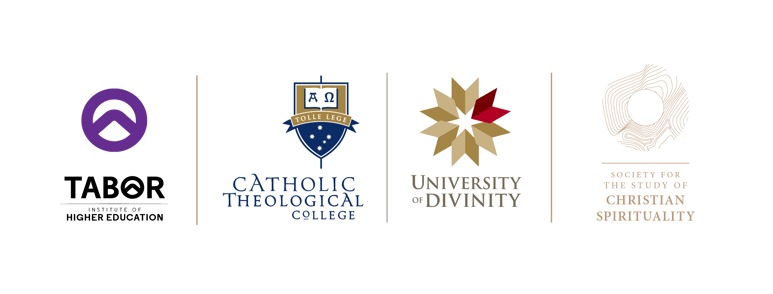
Note: The Conference is held by the Society for the Study of Christian Spirituality. Tabor is hosting it on its campus and confirms that all abstracts, papers, sessions that form part of the Conference as well as opinions expressed by contributors, do not necessarily represent the view and opinion of Tabor Institute of Higher Education.


